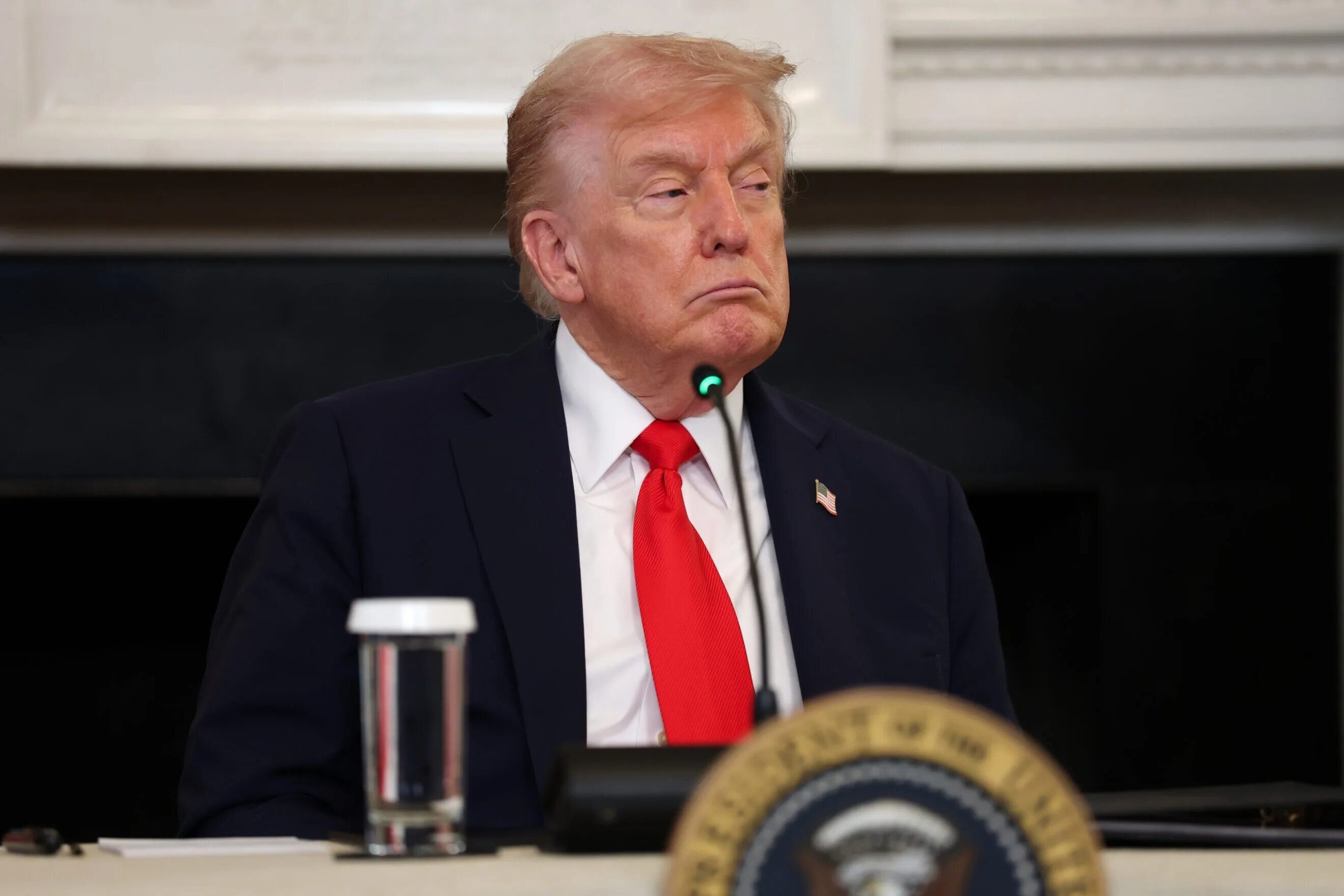That’s putting pressure on the EU to step up and make its position clear during Monday’s meeting of the International Maritime Organization.

BRUSSELS — The International Maritime Organization meets on Monday to approve the world’s first global framework to cut shipping emissions — but the U.S. is pressing to kill its adoption.
The framework was endorsed by an IMO working group in April and now needs final approval from a qualified majority of the 176 member countries. But the U.S. is warning that countries supporting the IMO framework could face tariffs, visa restrictions or port levies.
In April, U.S. delegates walked out of IMO talks and in August, Washington sent a letter to other delegations urging them to block the proposal. “President Trump has made it clear that the U.S. will not accept any international environmental agreement that unduly or unfairly burdens the U.S. or the interests of the American people,” the letter read.
That’s putting pressure on the EU to take a more active role.
The key ask from industry is for Brussels to be clear that if the IMO succeeds in bringing in its own system, called the Net-Zero Framework, then shippers won’t also be faced with fees under the EU’s Emissions Trading System and its FuelEU Maritime Regulation.
“At this critical juncture, we believe the Commission must send a clear message to the other countries in the IMO process: that the EU … will avoid any double regulation and double payment for the same emissions,” said Sotiris Raptis, secretary-general with the European Shipowners lobby.
That demand was formalized in an Oct. 3 letter from the European Shipowners to Transport Commissioner Apostolos Tzitzikostas, seen by POLITICO, urging Brussels to speak with one voice before the vote.
In August, Climate Commissioner Wopke Hoekstra said the EU would review both its ETS and FuelEU Maritime Regulation if the IMO standard created a “significant” extra cost for shippers. But industry says that might not be clear or specific enough.
Major industry groups — from Japan, Belgium, the Netherlands, Singapore, the U.K., Norway and Denmark — have also signed a joint statement urging the EU to take a clear position. They argue that Europe, which already leads on shipping climate policy, should “send a message of alignment” once the IMO deal is adopted.
The worry is that if the EU isn’t clear, it could push a few wavering countries to side with the U.S. against the IMO deal, according to people close to the discussions who spoke to POLITICO on condition of anonymity to discuss diplomatic matters.
In their letter, the industry groups warned that if the IMO effort fails, the result could be a “clashing patchwork” of regional and national regulations.
However, other shipping groups are wary of the initiative and the IMO effort is splitting the industry.
Last month, a group that included some of the world’s largest oil tanker fleets warned that the IMO’s approach should be reconsidered.
In 2023, IMO agreed on a greenhouse gas strategy stating that global shipping — responsible for about 3 percent of global greenhouse gas emissions — must become climate neutral around 2050. The Net-Zero Framework entails concrete mandates for the reduction of emissions from ships as well as a pricing mechanism that puts a cost on undercompliance and rewards the use of alternative, greener fuels under a global fuel standard.
Despite the Trump administration’s battle against the new IMO regulation and resistance from a “minority of oil-producing countries,” Alison Shaw, IMO manager at the green NGO Transport & Environment, said that “in April, a clear majority of 63 countries already expressed support,” and that “this shows that momentum for cleaner shipping is strong.”
